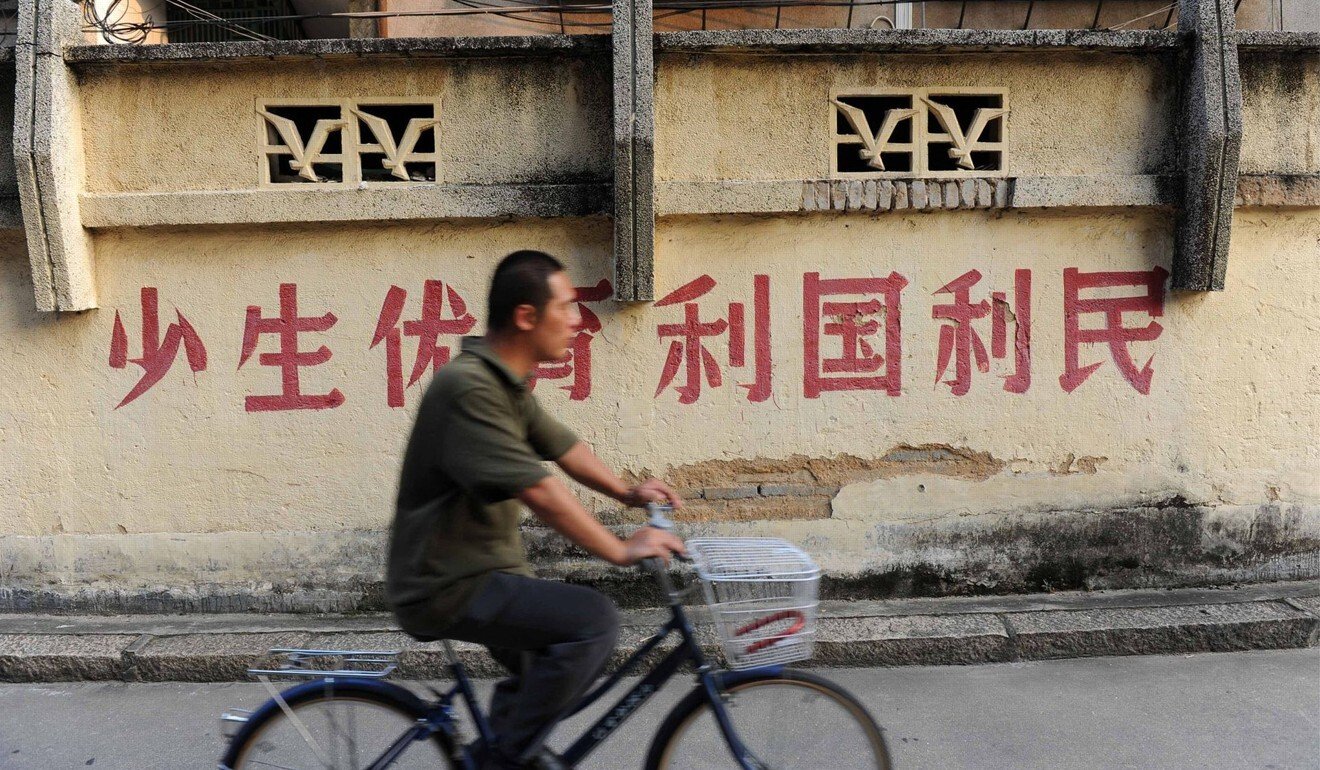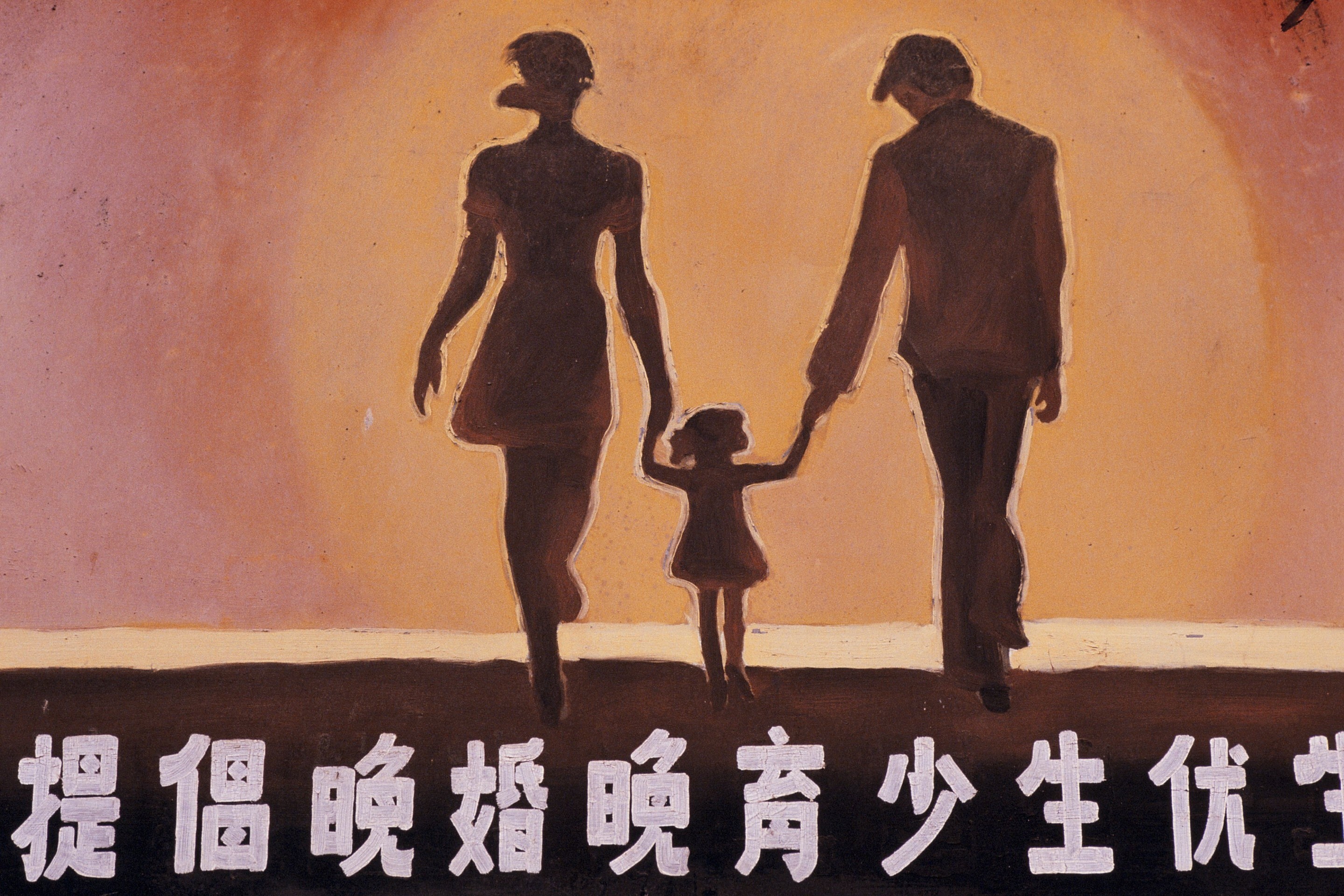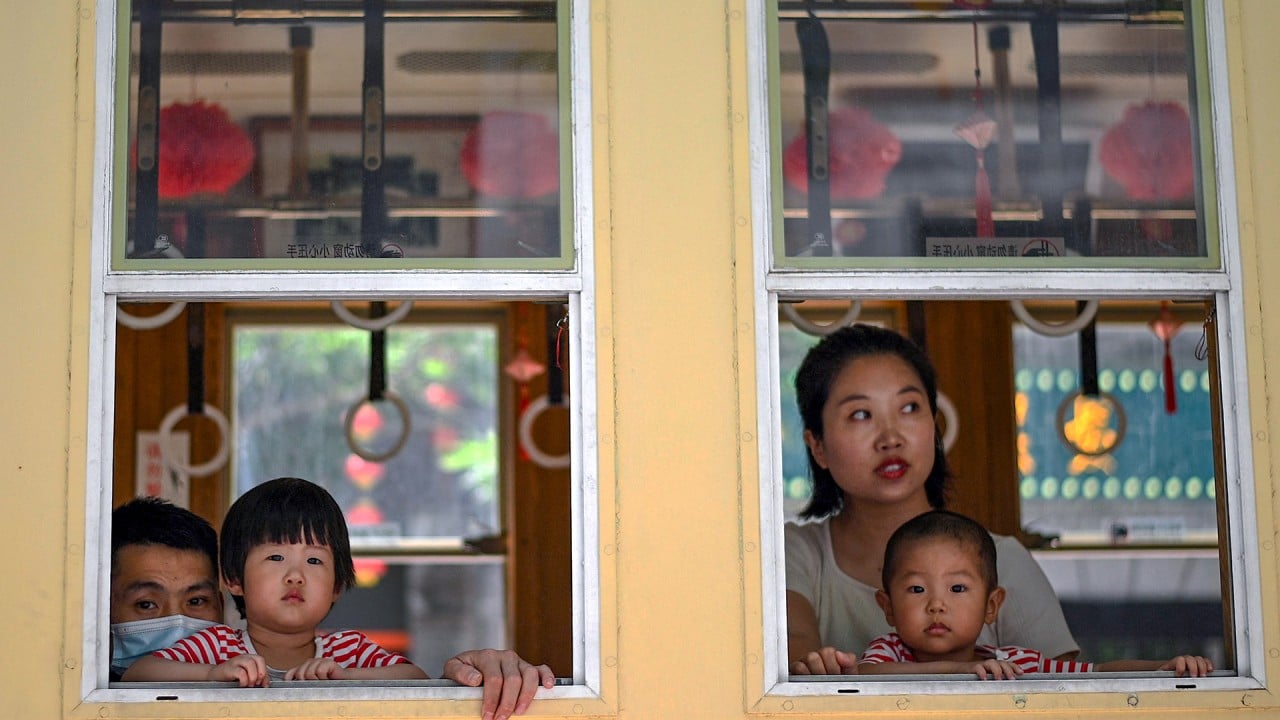
‘Have babies or go to jail’: Chinese internet mocks official call for 3-child policy propaganda submissions
- One popular fake slogan said, ‘Women who have three children die young’
- It brings to mind an age when the one-child-policy propaganda was often cruel
If the Chinese internet were to have its way, the next official slogan to promote the country’s three-child policy could be: “If you do not get married or have children, you will end up in jail. If you do, you will be ensured a happy life.”
In May, the Chinese government declared that all mainland citizens can now have a third child, scrapping the two-child limit that had been the law since 2016.

It hoped the works submitted would be “acknowledged by people in different cultural backgrounds, gender and age groups”. It also said it wanted slogans that advertised a “long-term and balanced development of population” as well as “harmonious family values”, including “getting married at an appropriate age”.
The CFPA did not get what it asked for, at least on social media. The request was met with mockery and sarcastic suggestions.
One said: “Have more children, die young, do not give your country any trouble.” Another person wrote: “Women who have three children die young; women who have boys age fast”.

A popular idea said: “If you don’t give birth and I don’t give birth, where will cheap labour come from?”
The contest runs until September 15, and a panel will judge the slogans and choose 35 winners, who will be given cash rewards from 300 yuan (US$46) to 1000 yuan, the CFPA statement said.
The call for slogans brought back memories of a time when propaganda messages were harsh or even threatening.
During the years of China’s notorious one-child policy, which was implemented in 1980, messages painted on walls or written on banners would tell women to install intrauterine devices to keep them from getting pregnant after they had one child, among other things.
Other messages said: “If one child is born outside the policy, the whole village gets sterilised,” or, “It is better to have 10 tombs than one child”.

03:49
How much does it cost to raise a child in China?
During the two-child era, which started in 2016, the slogans became more subtle but with an underlying message that citizens should abide by the national population policy.
Messages during those years read along the lines of: “One is too few, while two are just right”.
As the three-child policy gets off the ground, the propaganda is likely to be the opposite of the messaging during the one-child policy because the government is trying to encourage people to have more children, not less.
China is facing a rapidly ageing population compounded by the lowest birth rate in decades. Many people, faced with a competitive and high-pressure society, are either delaying having children or deciding to forgo it altogether.
Government policies have made getting a divorce more complicated, and incentives, such as a 500-yuan (US$77) monthly handout or extra 30 days of maternity leave, aim to push people towards having kids.

.jpg?itok=H5_PTCSf&v=1700020945)